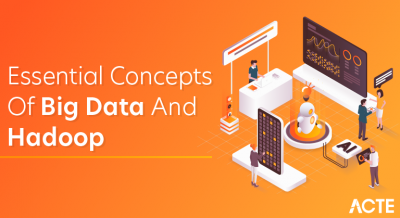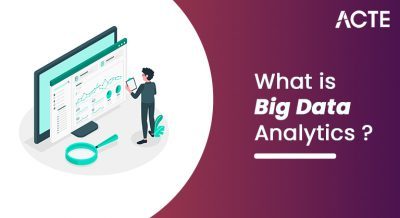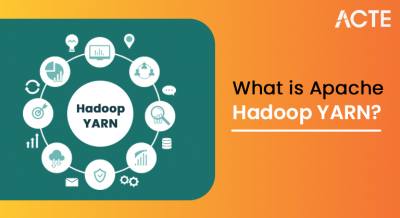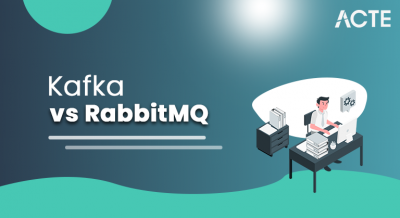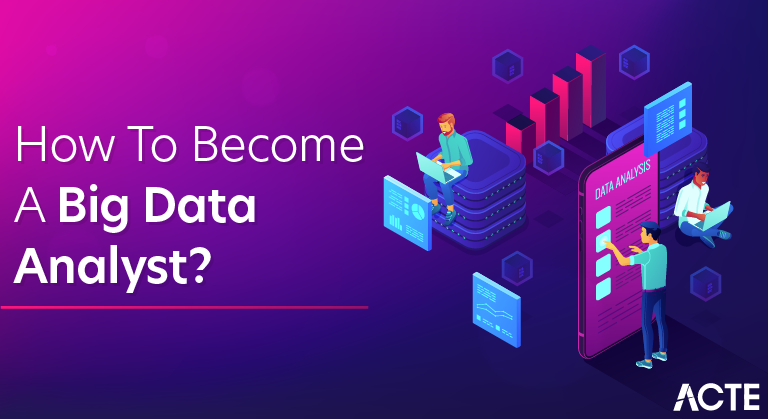
A data analyst is responsible for understanding the trends and insights that are revealed in massive data sets. Data analysts are often hired by companies to help inform decisions or improve business practices. This guide walks through the necessary steps to become a data analyst and contains a detailed job description, salary information, and future job outlook.
The three steps to launching a data analyst career
Step 1: Earn a bachelor’s degree in information technology, computer science, or statistics
Minor or study applied statistics or data analysis. Also, take computer science classes that emphasize project management and database management. Find an advisor or career counselor that is familiar with a data analyst career path.
Step 2: Gain data analyst experience
It is difficult to gain employment as a data analyst if you do not have any experience. Interning while in school is a good way to gain valuable experience and will help with insights about additional skill development and training. Even still, most people in technical careers start at entry-level positions in this case including positions such as a statistical assistant or technician. These jobs will provide valuable on-the-job training and experience. Take as many in-house training classes as possible, especially ones about analytical software programs and big data management. Experience, knowledge, and willingness to learn will help you rise to the level you desire.
Step 3: Advancing your career – consider a master’s degree or certificate program
An advanced degree will offer more job opportunities and ways to advance your career. Employers want candidates to have an array of knowledge and be familiar with the latest technologies and tools. Consider a master’s degree in data science, data analytics, or big data management. These programs will generally provide exposure to the newest software programs from experts in the field. Many universities partner with corporations to create team assignments, internships, and capstone projects: which will gain invaluable real-world experience while earning an advanced degree
Key Skills Needed by Big Data Analysts
A Big Data Analyst needs a broad range of skills to achieve their goals. Effective interpersonal skills are quite useful in communicating Big Data results to employers and team members. Additionally, Big Data Analysts should have the technical abilities needed for the work, which includes working with Cloud services such as Amazon Web Services (AWS) or Microsoft Azure. It is not uncommon for a freelance Big Data Analyst to have a preferred cloud service, but for security purposes, they may have to work with the company’s cloud. Management skills can also be helpful in overseeing staff and working with assistants.
The following qualifications are generally expected from Big Data Analysts:
- Industry Experience: Analyzing Big Data requires an understanding of the industry, whether it be astronomy or finance. This understanding provides a screening process, or a paradigm, which is used to define and frame the questions being asked. The more experience one has in a particular field and life in general, the more understanding one will have when doing research. A broad background of experience provides an understanding of how to interpret data.
- Statistics: Processing Big Data requires a knowledge of statistics. Statistics is a fundamental building block for Data Science, probability distribution, and random variables.
- Languages: Java, R, Python, C++, Hive, Ruby, SQL, MATLAB, SAS, SPSS, Weka, Scala, Julia. At a minimum, a Big Data Analyst should be familiar with R, Python, and Java.
- Computational Frameworks: Having a solid understanding of frameworks such as Apache Spark, Apache Samza, Apache Flink, Apache Storm, and Hadoop is essential. These technologies support the processing of Big Data, which, for the most part, can be processed as it is streamed.
- Data Warehousing: Understanding how data is stored and how to access it is important. Experience with non-relational database systems is also quite useful. Examples of non-relational (NoSQL) databases include Cassandra, Hbase, CouchDB, HDFS, and MongoDB.
- Data Visualization: Big Data can be difficult to comprehend and discuss. This is why pictures (also known as visuals) make discussing Big Data easier. Exploring even just a sample of data visualizing tools like Tableau or Qlikview can show the shape of data, revealing hidden details.
- Communication: While Data Visualization is a useful tool, the ability to speak intelligently and clearly is a necessity for Big Data Analysts. Results and how they were produced must be explained to the people paying the bill. After researching the data, Big Data Analysts may also have to make presentations to different departments within the organization.
- Written Reports: A written report provides a permanent record of observations and conclusions for clients or employers.
Normal Tasks and Responsibilities
Big Data Analysts are responsible for realizing three key real-time solutions – affordability, speed, and quality – and providing Business Intelligence to clients or employers. They may work with Data Quality teams ensuring data integrity and thoroughness, or perhaps with management to plan and perform data analyses. Big Data Analysts may also participate in planning organizational changes to maximize profits and minimize losses. Abhishek Mehta, the founder, and CEO of Tresata, a Predictive Analytics company, stated, “The ability to deliver products and services at the right time, in the right place, and to the right customer, instantly, is the future.”
A Big Data Analyst will, on a regular basis:
- Determine organizational goals
- Work with management, IT teams, or Data Scientists
- Data mine from a variety of sources
- Screen and clean data to remove irrelevant information
- Research trends and patterns
- Find and identify new opportunities
- Provide clear and concise data reports and visualizations for management
Let us now look at some of the key skills needed for being a big data analyst –
1) Programming
- While a traditional data analyst might be able to get away without being a full-fledged programmer, a big data analyst needs to be very comfortable with coding. One of the main reasons for this requirement is that big data is still in an evolution phase. Not many standard processes are set around the large complex datasets a big data analyst has to deal with. A lot of customization is required on a daily basis to deal with unstructured data.
- Which languages are required – R, Python, Java, C++, Ruby, SQL, Hive, SAS, SPSS, MATLAB, Weka, Julia, Scala? As you can not knowing a language should not be a barrier for a big data scientist. At the minimum one needs to know R, Python, and Java. While working you may end up using various tools. Programming Language is only a tool and more tools you have in your kitty, merrier it is.
2) Data Warehousing
- Experience with relational and non -relational database systems is a must. Examples of the non- relational databases include – Mysql, Oracle, DB2. Examples of the non-relational databases include – NoSql: Hbase, HDFS, MongoDB, CouchDB, Cassandra, Teradata, etc.
3) Computational frameworks
- A good understanding and familiarity with frameworks such as Apache Spark, Apache Storm, Apache Samza, Apache Flink, and the classic MapReduce and Hadoop. These technologies help in Big Data processing which can be streamed to a great extent.
4) Quantitative Aptitude and Statistics
- While the processing of Big Data requires great use of technology, fundamental to any analysis of data is good knowledge of Statistics and linear algebra. Statistics is a basic building block of data science and understanding of core concepts like summary statistics, probability distribution, random variables, Hypothesis testing framework is important if you are data scientist of any genre.
5) Business Knowledge
- To keep the analysis focused, to validate, sort, relate, evaluate the data, the most critical skill of a big data scientist is to have a good knowledge of the domain one is working on. In fact, the reason big data analysts are so much in demand is that it’s very rare to find resources that have a thorough understanding of technical aspects, statistics, and business. There are analysts good in business and statistics but not in programming. There are expert programmers without the know-how of how to put the programs in the context of the business goal.
Data Analyst Skills
Other than the fact that you absolutely love data, there are certain other skills that a Data Analyst must possess.
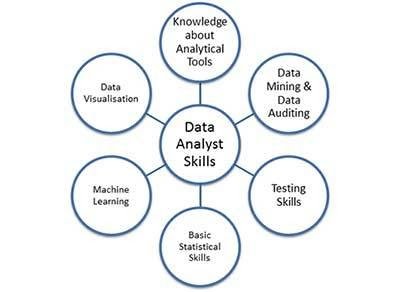
Knowledge about the various Tools/Programming Languages
As a data analyst, you are expected to have knowledge about the best data analytical tools or programming languages like R or Python or SAS Only after using one of the scripting languages it will be possible for the data analyst to find new meaningful insights.
Data Mining and Data Auditing Skills
As mentioned above, data mining and data auditing are must-have skills for any data analyst. Data mining is the practice of examining large pre-existing databases in order to generate new information whereas data auditing involves profiling the data and assessing the impact of poor quality data on the organization’s performance and profits. So make sure to brush on these skills.
Testing Skills
Testing skills are required by a Big Data analyst as he/she will be carrying out A/B testing based on different hypotheses that directly and indirectly impact different Key Performance Indicators
Basic Statistical Skills
Usually, it is the Data Scientist that works on the statistical part but even as a data analyst you should have basic statistical knowledge as it will help you to select the right approach while dealing with a particular situation.
Machine Learning
Again like Statistical Skills, machine learning is something that most data scientists work on but if you are working in a large organization then there are chances that you will need to know about the machine learning methods like Decision Tress, K-Means, etc.
Data Visualization and Communication
This is one of the most important skills that a data analyst must possess. Data visualization is the presentation of data in a pictorial or graphical format. This helps the management to understand the data easily and quickly. The success of data visualization depends on how well you can communicate it to the management.
Big Data Analyst Job Description

- Importing/Collecting, cleaning, converting, and analyzing the data for the purpose of find insights and making conclusions.
- Presenting data in graphs, charts, tables, etc, and designing and developing relational databases for collecting data.
- Conduct research and make recommendations on data mining products, protocols, services, and standards in support of procurement and development efforts.
- Monitor the performance of the data mining system and if there are any issues then respond to the same.
- Keep a track of trends, patterns, and correlation in the case of complex data sets.
- Prepare concise data reports and data visualizations for the management that will help in the decision making process.
- Work closely with the IT team and data scientists to determine and achieve the organizational goals.
- Assist the data scientist in the development of new analytical tools and methods as and when required.
- Create data definitions for new database file/table development and/or changes to existing ones as needed for analysis.

